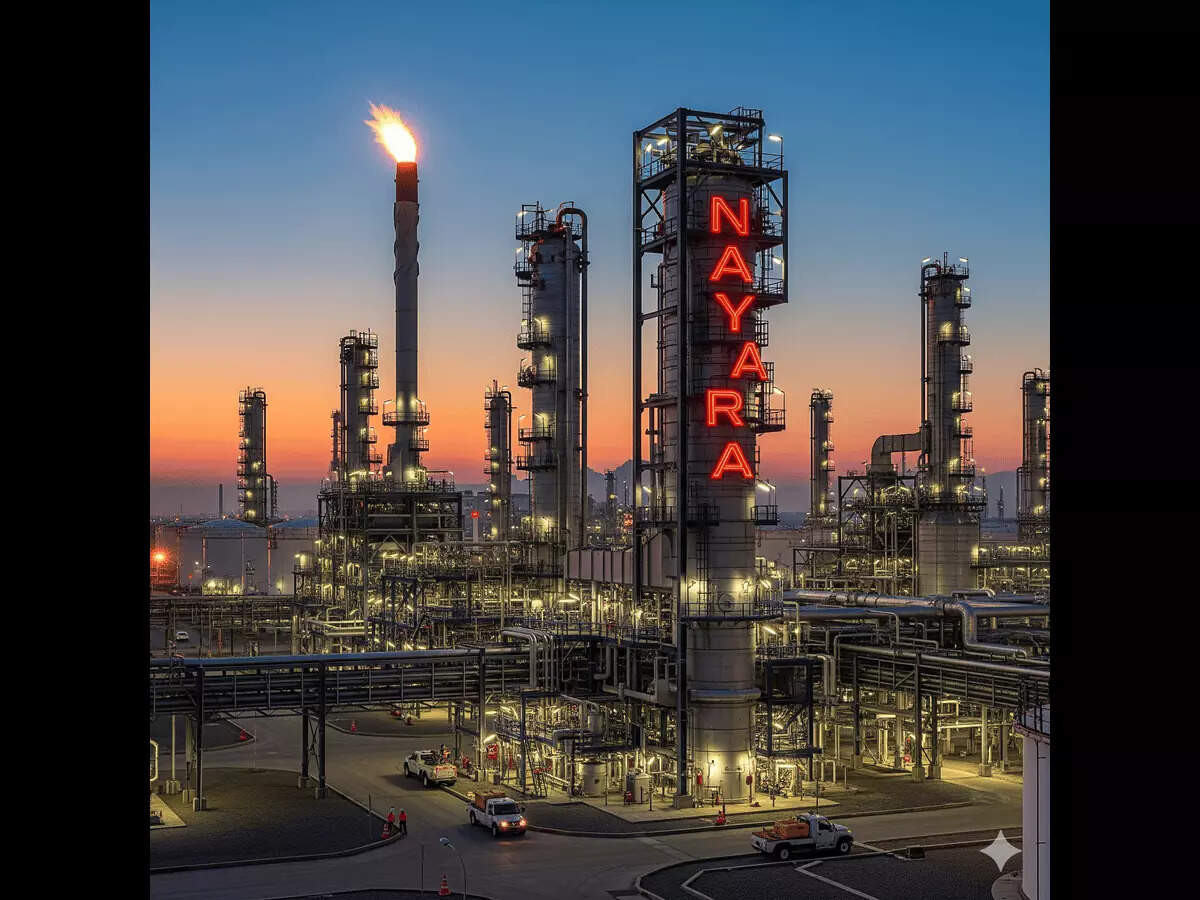Is Nayara Energy Feeling the Pinch? Sanctions Tighten Grip on Non-Russian Oil
The whispers started a while back, a subtle unease rippling through the oil markets. Now, it seems those whispers are turning into something more substantial. Nayara Energy, the Indian oil giant backed by Rosneft, is reportedly facing hurdles in sourcing non-Russian crude oil. What’s driving this shift, and what does it mean for India’s energy landscape? Let’s delve into the story.
For those unfamiliar, Nayara Energy operates a massive refinery in Vadinar, Gujarat. Historically, they’ve been a significant buyer of Russian crude, particularly after Western nations began imposing sanctions related to the conflict in Ukraine. The availability of discounted Russian oil helped Nayara maintain profitability while other refiners faced headwinds. However, relying solely on one source, even a seemingly bottomless one, carries inherent risks.
The heart of the issue revolves around increasingly stringent enforcement of sanctions. While India hasn’t officially joined the sanctions regime against Russia, banks and other entities are understandably wary of inadvertently running afoul of Western regulations. This “over-compliance,” as some analysts are calling it, is making it difficult for Nayara to secure financing and insurance for shipments of non-Russian crude.
Think of it like this: imagine you’re a ship owner. Would you be keen to transport oil if there’s even a chance your vessel could be blacklisted, even temporarily, because of perceived connections to sanctioned entities? The potential financial and reputational damage is simply too great. This heightened caution is rippling through the entire supply chain, making it harder and more expensive for Nayara to diversify its crude oil sources.

The Quest for Diversification
Why the need to diversify in the first place? Well, relying solely on Russian crude presents several challenges. Geopolitical instability, price fluctuations, and potential disruptions to supply are just a few. Plus, processing only one type of crude isn’t ideal for optimizing refinery output. Refineries are typically designed to handle a blend of different crudes to maximize the production of various petroleum products.
Nayara, like any prudent business, recognizes the need for a balanced portfolio. Sourcing crude from different regions offers stability and flexibility. This allows them to capitalize on market opportunities and ensure a consistent supply of raw materials for their refinery. The inability to readily access non-Russian sources throws a wrench into these plans.
Impact on India’s Energy Security
This situation has implications beyond just Nayara Energy’s bottom line. India is heavily reliant on imported oil to meet its growing energy demands. Any disruption to the supply chain, whether it’s caused by geopolitical events, logistical bottlenecks, or sanctions-related issues, can have a knock-on effect on the entire economy. Increased costs for refiners can translate into higher prices at the pump for consumers and businesses.
Furthermore, India has been actively seeking to diversify its energy sources and reduce its reliance on any single supplier. The struggles Nayara faces highlight the complexities of navigating the current geopolitical landscape and the challenges of balancing energy security with international relations. This situation further highlights the importance of investing in renewable energy sources and improving energy efficiency across the board. We discussed the government incentives for solar energy adoption [here](link-to-related-article).
What’s Next for Nayara Energy?
So, what can Nayara do? They’ll likely need to double down on efforts to demonstrate their independence from sanctioned entities and ensure full compliance with all applicable regulations. This might involve restructuring financing arrangements, enhancing transparency in their supply chain, and actively engaging with Western banks and insurers to rebuild trust. They may also need to negotiate longer-term contracts with Russian suppliers to secure a stable base load of crude while they navigate these choppy waters.
Ultimately, the situation underscores the interconnectedness of the global energy market and the far-reaching consequences of geopolitical tensions. It serves as a potent reminder that energy security is not just about securing access to resources, but also about managing risk, building resilience, and adapting to a constantly evolving world. The challenges Nayara Energy faces now highlight the need for a diversified and strategically secure energy future for India.
slug: nayara-energy-sanctions-non-russian-oil






